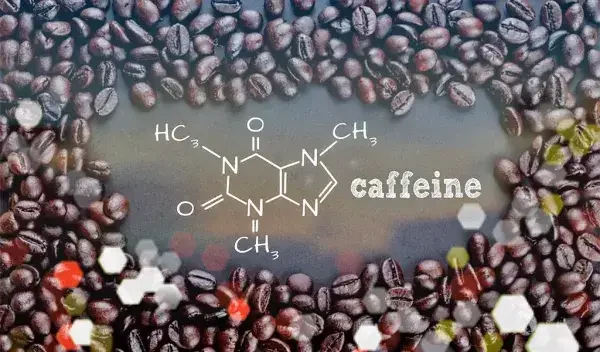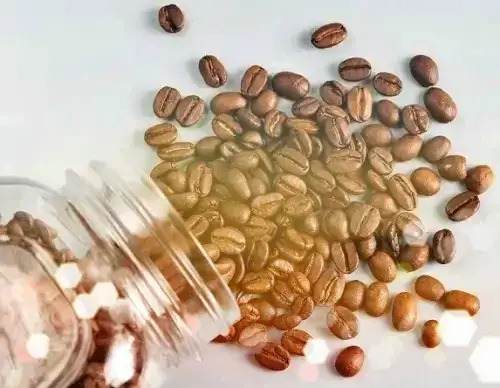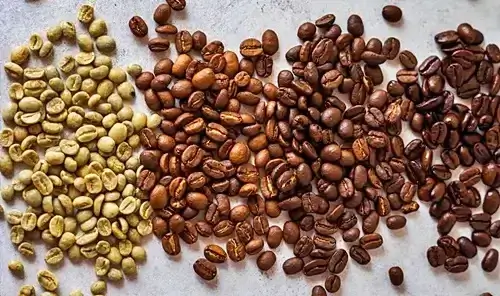Caffeine Myths. Caffeine is a substance that helps us feel more alert and energized. But what are its real benefits, and what potential downsides should we be aware of? Where Is Caffeine Found?
When we think of caffeine, coffee and tea usually come to mind. But it’s also present in cola and cocoa beans, which are rich in this stimulant.
Caffeine is found in a wide variety of products, and its concentration can vary significantly.
For example, some energy drinks may contain up to 160 mg of caffeine per serving, while a portion of chocolate syrup has only about 4 mg. Even decaffeinated coffee isn’t completely caffeine-free: a cup of Arabica coffee can still contain between 45 to 60 mg of caffeine.
Caffeine is also found in some over-the-counter painkillers and cold medications, where the content can range from 16 to 200 mg. Interestingly, caffeine has a mild pain-relieving effect and can even enhance the effectiveness of other analgesics.
Now, let’s debunk some common myths about caffeine.
Caffeine Myths, Causes Addiction.
This claim is only partly true. Caffeine is a central nervous system stimulant, and regular consumption can lead to mild dependence. However, it doesn’t cause the severe health problems associated with drugs or alcohol.
If you suddenly stop consuming caffeine, you might experience temporary symptoms such as headaches and fatigue but these typically resolve within a few days.
That’s why most experts do not consider caffeine dependence to be a serious concern.
Caffeine Causes Insomnia.
Caffeine is absorbed and eliminated by the body relatively quickly. On average, half of the caffeine is cleared from your system within 5 to 7 hours.
For most people, one or two cups of coffee during the day won’t interfere with sleep. However, consuming caffeine in the evening can impact sleep quality, so it’s best to avoid it within six hours of bedtime.
Sensitivity to caffeine varies some people may still experience insomnia or other side effects.
Caffeine Increases the Risk of Osteoporosis, Heart Disease, and Cancer.
Moderate caffeine consumption about 300 mg per day is generally safe for healthy individuals. However, older adults and people with high blood pressure should be more cautious.
While excessive caffeine intake can increase calcium loss, recent studies suggest that it doesn’t necessarily lead to bone density loss, especially if calcium intake is adequate.
Large-scale studies have found no significant link between caffeine and an increased risk of heart disease.
In fact, research involving over 20,000 people found no connection between caffeine and cancer; some findings even suggest caffeine might offer protection against certain types of cancer.
Caffeine Is Harmful for Women Trying to Conceive.
Most modern research does not show a connection between moderate caffeine consumption (about one cup of coffee per day) and fertility problems, miscarriage, birth defects, premature birth, or low birth weight.
Still, pregnant women or those planning to conceive are advised to limit caffeine intake to no more than 200 mg per day, as high caffeine consumption has been linked in some studies to an increased risk of miscarriage.
Caffeine Causes Dehydration.
While caffeine does have a mild diuretic effect, the fluid you get from caffeinated drinks helps balance out any water loss. Studies show that moderate caffeine intake does not lead to dehydration.
Caffeine Is Dangerous for Children.
As of 2004, children aged 6 to 9 consumed about 22 mg of caffeine per day on average. However, the rise in popularity of energy drinks which often contain high doses of caffeine.
Has made this issue more concerning. Some children are more sensitive to caffeine, which can cause restlessness or irritability.
Additionally, most caffeine consumed by children comes from sugary soft drinks and energy beverages, which are linked to obesity. So while caffeine itself may not be inherently harmful, the products containing it are not recommended for children.
Caffeine Sobers You Up.
Some believe that drinking coffee helps counteract the effects of alcohol. In reality, caffeine does not speed up the elimination of alcohol from the body. Reaction time and brain function remain impaired regardless of caffeine intake. So no, coffee won’t make you sober.
Caffeine Has No Health Benefits.
Although caffeine’s health benefits aren’t universally proven, many coffee lovers claim it helps them stay focused and alert—and science backs this up. Some studies have shown that caffeine can improve concentration, attention, and energy levels.
For instance, French researchers found that women who regularly consumed caffeine experienced slower cognitive decline over time.
Caffeine may also help alleviate certain types of headaches and improve symptoms of asthma. Preliminary research suggests it could lower the risk of Parkinson’s disease, liver disease, colorectal cancer, type 2 diabetes, and even dementia.
The best ten coffee varieties.
Here’s a curated list of some of the best and most celebrated coffee varieties in the world, based on flavor complexity, aroma, bean quality, and growing conditions:
1. Ethiopian Yirgacheffe.
• Origin: Ethiopia (Yirgacheffe region)
• Flavor Notes: Floral, citrusy, tea-like, with bright acidity
• Why It’s Special: Often considered the birthplace of coffee, Ethiopian beans like Yirgacheffe are known for their clean, complex flavors and are a favorite among specialty coffee drinkers.
2. Jamaican Blue Mountain.
• Origin: Blue Mountains, Jamaica
• Flavor Notes: Mild, smooth, slightly sweet with floral overtones
• Why It’s Special: Grown at high altitudes with ideal climate conditions, this coffee is rare, low in bitterness, and highly sought after (and priced accordingly).
3. Kona Coffee.
• Origin: Big Island, Hawaii (Kona region)
• Flavor Notes: Nutty, smooth, slightly fruity with chocolate undertones
• Why It’s Special: The volcanic soil and tropical climate of Kona produce uniquely balanced and aromatic coffee, often regarded as one of the best in the United States.
4. Panama Geisha (Gesha).
• Origin: Panama (originally from Ethiopia)
• Flavor Notes: Jasmine, bergamot, tropical fruit, and citrus
• Why It’s Special: Considered a luxury coffee, Geisha beans are known for their extraordinary fragrance and complexity. It often wins international tasting competitions.
5. Colombian Supremo.
• Origin: Colombia
• Flavor Notes: Caramel, chocolate, mild fruitiness
• Why It’s Special: Colombia’s climate and terrain are ideal for coffee growing. Supremo beans are the largest and highest grade, offering well-balanced flavor and aroma.
6. Sumatra Mandheling.
• Origin: Sumatra, Indonesia
• Flavor Notes: Earthy, spicy, low acidity, full body
• Why It’s Special: Known for its deep, rich flavors, Mandheling is often favored for espresso and dark roasts.
7. Kenya AA.
• Origin: Kenya (high-altitude farms)
• Flavor Notes: Blackcurrant, wine-like acidity, citrus
• Why It’s Special: “AA” denotes large bean size and high quality. Kenyan coffees are bold, bright, and vibrant, often with a complex fruit profile.
8. Guatemala Antigua.
• Origin: Antigua region, Guatemala
• Flavor Notes: Chocolate, spice, floral, smoky
• Why It’s Special: Grown in rich volcanic soil, this variety has a full body and deep, satisfying flavor—perfect for those who like a darker roast with complexity.
9. Brazilian Santos.
• Origin: Brazil (São Paulo region)
• Flavor Notes: Nutty, chocolatey, low acidity
• Why It’s Special: Brazil is the world’s largest coffee producer, and Santos beans are valued for their smooth body and sweet profile, often used in blends and espresso.
10. Tanzanian Peaberry.
• Origin: Tanzania
• Flavor Notes: Bright, fruity, sometimes wine-like
• Why It’s Special: Peaberry beans are a natural mutation where only one seed forms inside the coffee cherry. They are believed to roast more evenly and have a livelier taste.
The Bottom Line.
Caffeine can have both positive and negative effects, depending on the amount consumed and individual sensitivity. If you’re considering taking caffeine in the form of supplements, be sure to consult your doctor first.
Have a Great Day!





